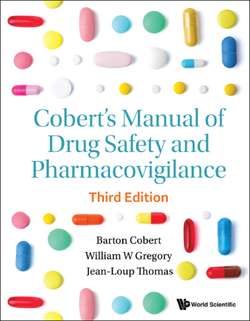Читать книгу Cobert's Manual Of Drug Safety And Pharmacovigilance (Third Edition) - William Gregory - Страница 33
На сайте Литреса книга снята с продажи.
Investigator-Initiated Research
ОглавлениеInvestigator-Initiated Research (IIR) includes Investigator-Initiated Trials (IITs) and Investigator-Initiated Studies (IISs), also called Investigator-Sponsored Trials (ISTs). These usually arise from new ideas thought up by researchers in the academic world or occasionally suggested by the pharmaceutical company. New uses or ways of administering drugs are frequently proposed by academic researchers to pharmaceutical companies. Many companies actually have physicians, PhDs, or pharmacologists on staff (often called “medical liaisons”), who travel to academic medical centers and seek out such clever new uses. Such trials are usually done at single centers. Sometimes, the investigator will come up with the idea and approach the company (sponsor or patent holder) for assistance with either a grant or product supply (especially if the product is costly).
This type of study can be instrumental in the scientific development of a drug. The advantages of IIR are that new ideas are found and explored, costs are usually relatively low, and the studies can be done fairly quickly. The disadvantage is that many details that should be determined before the trials are not addressed (e.g., effective dose and safety in this population). IIR that fails usually ends that idea. Thus, if too low a dose is chosen, one might never know that a higher dose would produce positive results. Funding is usually from the pharmaceutical company in the form of a grant-in-aid, drug supply, protocol, or case report form support.
It is very rare that a contract or agreement is not signed by both parties. The legal sponsor of the study is not the pharmaceutical company but rather the investigator. It is he or she who opens the IND with the FDA or the equivalent in other countries (often with the help of the pharmaceutical company by giving the investigator permission to reference a company IND). The usual safety provisions are followed: Good Clinical Practices, investigational review boards, and SAE reporting to the health agency by the investigator. Note that FDA in its 2011 IND regulatory rules requires the investigator/sponsor to handle safety reporting to the FDA, IRB, etc., as if he/she were a typical sponsor, such as a pharmaceutical company. Most pharmaceutical companies also require the investigator to report SAEs to the company (in addition to the health authority) so that the company maintains a full safety database for all uses of a product.
The contract/agreement between the investigator and the company needs to be perfectly clear regarding safety responsibilities among the parties concerned. This includes a mechanism for adaptation to new regulatory or partner requirements. The company should not engage in monitoring the data, i.e., checking source documents, because this could be construed as assuming the responsibilities of a sponsor. It is less clear from FDA regulations whether the pharmaceutical company should also submit the cases if the company receives them from the IIR investigator, who is required to submit them directly to FDA. These trials would technically be phase I if a new indication, formulation, or delivery is being studied. If not, they would most probably be considered phase IV trials. Not all studies require an IND (if the use of the drug is fully covered within the approved labeling). Such studies usually have to be registered with the appropriate health authority and clinical trial database (e.g., clinicaltrials.gov in the US and EudraCT in the EU).
In earlier years, disputes occurred over ownership of data and the publication (or rather lack of publication) of negative results. These are resolved, in general, with both parties retaining “ownership” of data and with the right to publish retained by the investigator regardless of the results.
